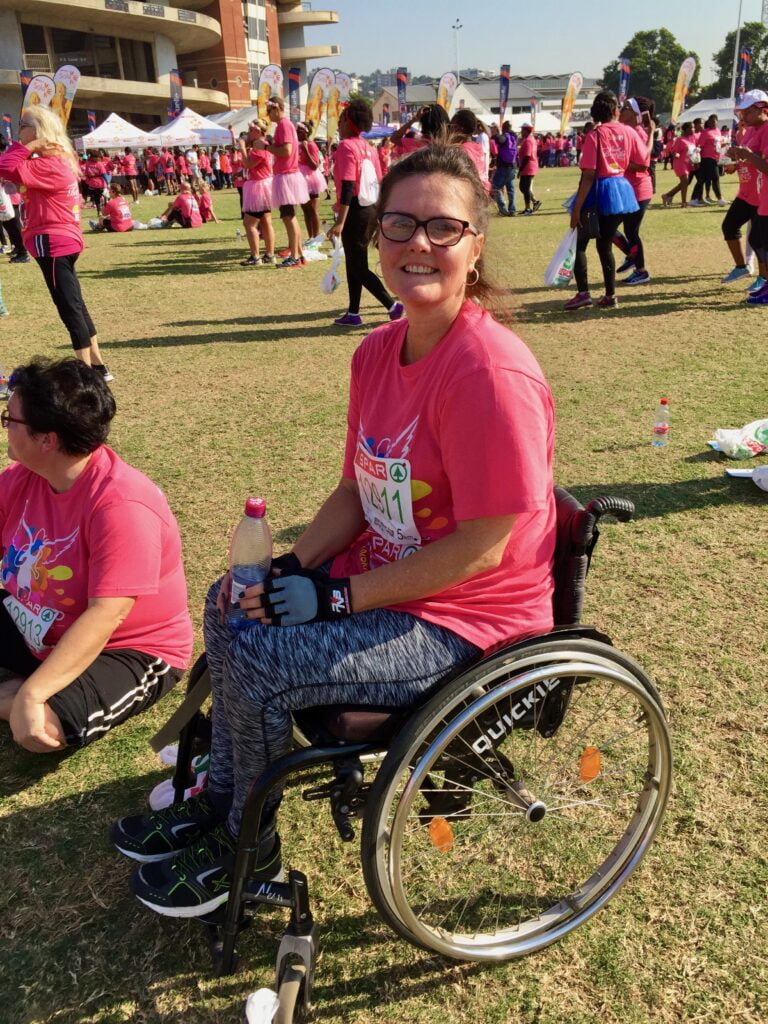Maintaining a positive outlook can be challenging for anyone – regardless of their mobility. Keeping your spirits up when daily life is challenging due to accessibility issues in a wheelchair can be demanding, but it’s definitely possible.
Here are some ideas to help you stay positive and engaged:
1. Stay Active & Fit

Explore sports and recreational activities that could potentially become part of a daily routine. Although adaptive sports and activities that designed for people with mobility challenges may be easier, any physical activity will be great. Whether it’s a brisk “roll”, an adapted yoga session, or a vigorous workout in a gym, incorporating exercise into your routine can significantly improve your mental health and contribute to a happier, more balanced life.
Exercise offers numerous benefits for mental health and overall well-being. Engaging in regular physical activity has been shown to reduce symptoms of anxiety and depression, boost mood, and alleviate stress. It stimulates the release of endorphins, the body’s natural mood lifters, and promotes better sleep quality, which is crucial for maintaining mental health. Additionally, exercise enhances cognitive function, memory, and concentration, while also fostering a sense of accomplishment and self-esteem.
2. Set Achievable Goals
Setting goals, regardless of one’s physical condition, is of vital importance. Being in a wheelchair may present unique challenges, but it should not limit your aspirations or ambitions. In fact, setting goals can provide a sense of purpose, motivation, and direction. These goals can encompass various aspects of life, from personal achievements to professional accomplishments, contributing to a fulfilling and meaningful life.
By setting and working towards these objectives, people in wheelchairs can break down barriers, redefine their capabilities, and inspire others to do the same, proving that determination and resilience can triumph over adversity.
In essence, setting goals empowers people to create their own paths towards a brighter and more fulfilling future, wheelchair or not.
3. Explore Your Creative Side
Exploring your creative side is a fundamental aspect of human expression and personal growth, regardless of physical limitations. Being in a wheelchair may present unique challenges, but it should never hinder your ability to tap into your creativity.
In fact, embracing creativity can be especially empowering for individuals facing mobility constraints. It allows them to transcend physical boundaries, find new avenues of self-expression, and discover a sense of purpose and fulfilment.
Remember: Creativity knows no bounds, and the act of creating, whether through art, music, writing, or any other form, can serve as a powerful means to unlock your potential, foster resilience, and ultimately, lead to a richer and more meaningful life.
4. Advocate for Accessibility
Advocating for accessibility is crucial for maintaining emotional well-being when in a wheelchair. Accessible environments not only facilitate physical mobility but also empower individuals with a sense of inclusion and independence. When places are wheelchair-accessible, it sends a powerful message that everyone’s needs and dignity are valued. Without these accommodations, individuals in wheelchairs can face daily challenges that erode their emotional well-being, from isolation to frustration. By championing accessibility, we not only enhance the physical accessibility of spaces but also promote a society where empathy and inclusivity flourish, ultimately contributing to improved emotional well-being for all.
5. Stay Social
As with anyone who is trying to maintain their mental well-being, staying social is of paramount importance for individuals using wheelchairs. Wheelchair users may face physical challenges that can lead to isolation and feelings of loneliness. Engaging in social activities and maintaining connections with friends and family not only provides emotional support but also fosters a sense of belonging and inclusion.

Social interactions offer opportunities for meaningful conversations, shared experiences, and a sense of purpose, all of which contribute to improved mental health. Moreover, being part of a social network can help wheelchair users navigate physical and emotional obstacles more effectively, enhancing their overall quality of life and well-being.
Remember that it’s normal for any individual to have both good and bad days, regardless of a person’s mobility and it’s okay to ask for support when you need it. Building a support network and finding ways to stay engaged and positive can significantly improve your quality of life when daily life is challenging due to inaccessibility in a wheelchair. At the end of the day, maintaining good mental health and well-being remains every individual’s own responsibility, regardless of what their circumstances are.
What do you do to stay positive and maintain good mental health and well-being?

